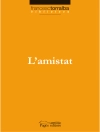A few years ago globalism seemed to be both a known and inexorable phenomenon. With the end of the Cold War, the opening of the Chinese economy, and the ascendancy of digital technology, the prospect of a unified flow of goods and services and of people and ideas seemed unstoppable. Political theorists such as Francis Fukuyama proclaimed that we had reached ‘the end of history.’ Yes, there were pockets of resistance and reaction, but these, we were told, would be swept away in a relentless tide of free markets and global integration that would bring Hollywood, digital finance, and fast food to all. Religious fundamentalism, nationalism, and traditional sexual identities would melt away before the forces of ‘modernity’ and empire. A relentless, technocratic rationality would sweep all in its wake, bringing a neoliberal utopia of free markets, free speech, and increasing productivity.
Nonetheless, as we have begun to experience the backlash against a global world founded on digital fungibility, the perils of appeals to nationalism, identity, and authenticity have become only too apparent. The collapse of Soviet Communism left an ideological vacuum that offered no recognized place from which to oppose global capitalism. What is the alternative? The anxieties and resentments produced by this new world order among those left behind are often manifested in assertions of xenophobia and particularity. This is what it supposedly means to be really American, truly Muslim, properly Chinese. The ‘other’ is coming to take what is ours, and we must ‘defend’ ourselves.
Digitalizing the Global Text is a collection of essays by an international group of scholars situated squarely at this nexus of forces. Together these writers examine how literature, culture, and philosophy in the global and digital age both enable the creation of these simultaneously utopian and dystopian worlds and offer a resistance to them.
A joint publication from the University of South Carolina Press and the National Taiwan University Press.
Tabela de Conteúdo
Introduction, by Paul Allen Miller
1. On Being Old and Queer: Plato’s Seventh Letter in the Digital Age, or Resisting Neoliberalism, by Paul Allen Miller
2. Local Cultures, Global Audiences: The Dream (and Nightmare) of the World Novel, by Alexander Beecroft
3. Global Public, Digital Public: Neo-epistolarity and Tactical Consumption in A toi, by Bennett Yu-Hsiang Fu
4. Wagner in China: Negotiating the National, the Universal, and the Global, by Nicholas Vazsonyi
5. Right to the City: The Metropolis and ‘Gangnam Style’, by Julie Choi
6. The Garden of Living Paths: Interactive Narratives in Global Geek Culture, by Mou-Lan Wong
7. The Ontological Turn: A New Problematic for Literature and Globalization, by Meili Steele
8. Altered Realism in Ontological Fiction: Never Let Me Go and Point Omega, by Chi-she Li
9. Ghost in the Machine: Fetishism and the Laboring Body in Marx, Dickens, and Mayhew, by Hisup Shin
Sobre o autor
Paul Allen Miller is vice provost and Carolina Distinguished Professor at the University of South Carolina. He received his Ph.D. in comparative literature from the University of Texas. Miller is the author of Lyric Texts and Lyric Consciousness, Latin Erotic Elegy, Subjecting Verses, Latin Verse Satire, Postmodern Spiritual Practices, Plato’s Apology of Socrates with Charles Platter, A Tibullus Reader, Diotima at the Barricades: French Feminists Read Plato, and Horace and is the editor of fourteen volumes of essays on literary theory and gender studies.












